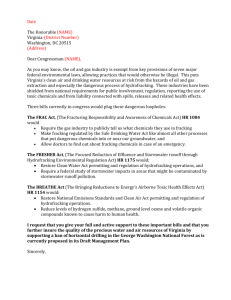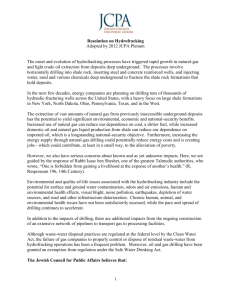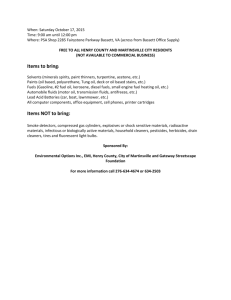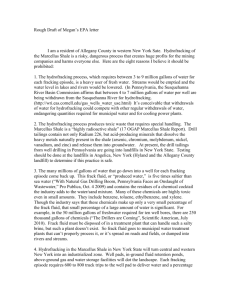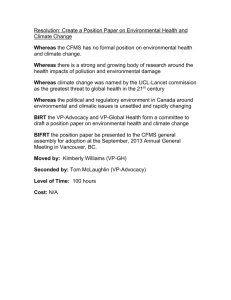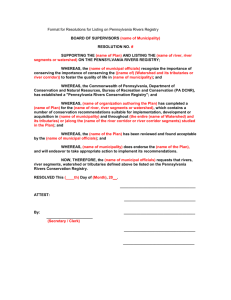statement from bassett medical center board of trustees
advertisement
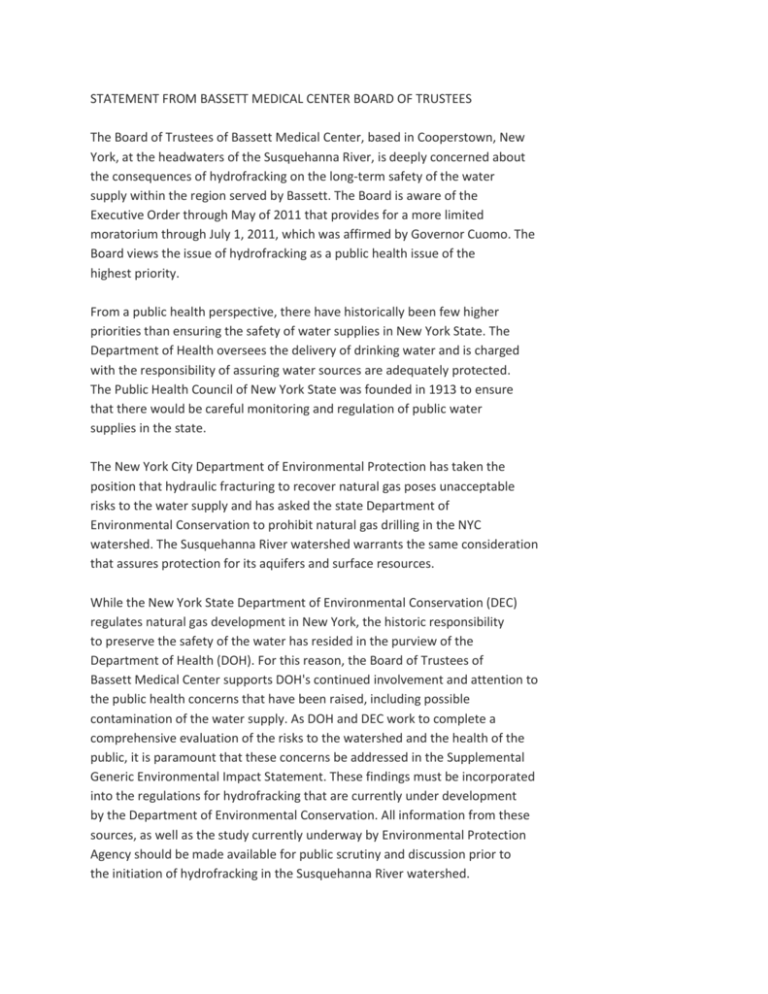
STATEMENT FROM BASSETT MEDICAL CENTER BOARD OF TRUSTEES The Board of Trustees of Bassett Medical Center, based in Cooperstown, New York, at the headwaters of the Susquehanna River, is deeply concerned about the consequences of hydrofracking on the long-term safety of the water supply within the region served by Bassett. The Board is aware of the Executive Order through May of 2011 that provides for a more limited moratorium through July 1, 2011, which was affirmed by Governor Cuomo. The Board views the issue of hydrofracking as a public health issue of the highest priority. From a public health perspective, there have historically been few higher priorities than ensuring the safety of water supplies in New York State. The Department of Health oversees the delivery of drinking water and is charged with the responsibility of assuring water sources are adequately protected. The Public Health Council of New York State was founded in 1913 to ensure that there would be careful monitoring and regulation of public water supplies in the state. The New York City Department of Environmental Protection has taken the position that hydraulic fracturing to recover natural gas poses unacceptable risks to the water supply and has asked the state Department of Environmental Conservation to prohibit natural gas drilling in the NYC watershed. The Susquehanna River watershed warrants the same consideration that assures protection for its aquifers and surface resources. While the New York State Department of Environmental Conservation (DEC) regulates natural gas development in New York, the historic responsibility to preserve the safety of the water has resided in the purview of the Department of Health (DOH). For this reason, the Board of Trustees of Bassett Medical Center supports DOH's continued involvement and attention to the public health concerns that have been raised, including possible contamination of the water supply. As DOH and DEC work to complete a comprehensive evaluation of the risks to the watershed and the health of the public, it is paramount that these concerns be addressed in the Supplemental Generic Environmental Impact Statement. These findings must be incorporated into the regulations for hydrofracking that are currently under development by the Department of Environmental Conservation. All information from these sources, as well as the study currently underway by Environmental Protection Agency should be made available for public scrutiny and discussion prior to the initiation of hydrofracking in the Susquehanna River watershed. Board of Trustees of Bassett Medical Center February 9, 2011 -------------------------------------------------RESOLUTION RESOLUTION BY THE MEDICAL STAFF OF THE BASSETT HEALTHCARE NETWORK REGARDING HYDROFRACKING FOR NATURAL GAS Whereas, we, the members of the professional staff of Bassett Healthcare Network are responsible for the health care of a significant proportion of the population of eight counties in central New York State, and Whereas, the hydrofracking method of drilling for natural gas involves the use of millions of gallons of water mixed with known carcinogens, teratogens, endocrine disruptors, and other toxic materials which are injected under extremely high pressures deep into the earth, and Whereas, unanticipated escape of any of this fluid into the aquifer would result in irreversible damage to our drinking water supply, and Whereas, the disposal of the portion of fluids and gases retrieved from these operations could result in irreversible damage to the air, waterways and natural environment, and Whereas, contamination of ground water, air and other environmental damage has already been demonstrated in numerous locales with similar geology, such as Pennsylvania, and Whereas, the resulting adverse health effects on the population we serve would far outstrip our knowledge or capacity to provide care, We hereby resolve that the hydrofracking method of gas drilling constitutes an unacceptable threat to the health of our patients, and should be prohibited until such time as it is proven to be safe. We resolve as well that the authority of the Environmental Protection Agency over all such activities should be restored. Approved: February 23, 2011
